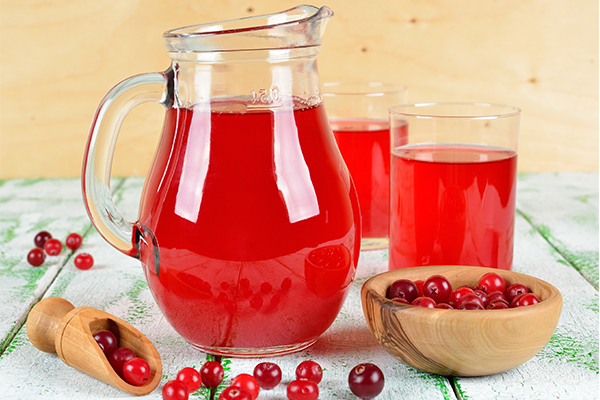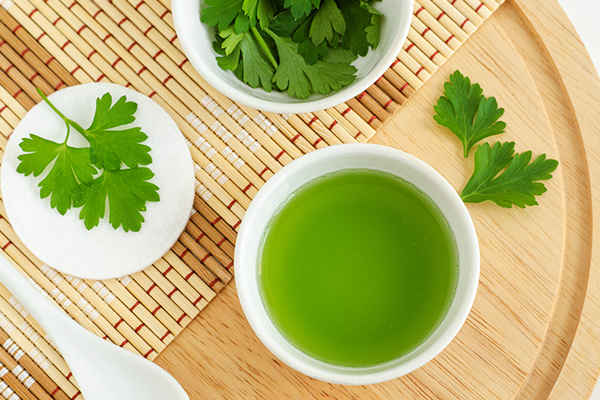In this article:
The urinary tract is made up of a pair of kidneys, which make urine by filtering the waste products from the blood. Thin tubes known as ureters stem from each kidney and drain the urine into the bladder, which stores the urine until it is excreted out of the body through another tube called a urethra.

Oftentimes, infection-causing bacteria find their way into the urinary tract through the genitals, moving upstream from the urethra to the bladder and traveling up the ureters to infect the kidneys.
If not treated in time, a kidney infection can lead to serious complications and can permanently damage your kidneys. Often, antibiotics are recommended to treat the infection. You can also use some home remedies to reduce the symptoms and promote healing.
Home Remedies to Manage a Kidney Infection
Here are some home remedies for a kidney infection.
1. Increase fluid intake
Increasing your fluid intake when suffering from a kidney infection can help reduce the symptoms and promote quick recovery. It will help flush out bacteria, waste, and toxic products from your kidneys, keeping them clean and healthy. (1)
A study published in the American Journal of Nephrology suggested a potentially protective effect of higher total water intake, particularly plain water, on the kidney. However, evidence from a large, well-designed randomized controlled trial is needed to conclusively establish this claim. (2)
How to consume:
- Drink at least 8 to 10 glasses of water daily.
- You can also drink 1 to 2 glasses of tender coconut water or lemon water daily.
- Also, drink fruit and vegetable juices so that your body gets all the necessary vitamins and minerals it requires to fight off the infection.
Note: Avoid coffee and alcoholic and fizzy beverages until your infection has cleared. Check with your doctor about fruit juices if you have diabetes.
2. Manage symptomatic pain with a hot compress
Pain in the lower abdomen, back, and hips is very common when suffering from a kidney infection. You can apply hot compresses to reduce the pain, relax the muscles of your abdomen, and relieve the pressure from your bladder. (3)
How to use:
- Prepare a hot water bottle or warm a heating pad on low setting.
- Place it on the lower abdominal area, back, and hips for a few minutes.
- Repeat as needed.
Note: You can also use cold compress instead of warm compress.
3. Consider drinking cranberry juice

Cranberry juice is reported to reduce urinary tract infections. However, there is no strong data to support its use for urinary tract infections.
Cranberry juice contains certain chemicals that may deter the bacteria from sticking to the urinary tract. This may prevent bacteria from thriving on the wall of the bladder and thus lessens your risk of infection. (4)
In one study, researchers found that cranberry juice reduced E. coli colonization of the bladder in an experimental mouse model of urinary tract infection and that the organic acids are active agents. The active treatments reduced bacterial counts in the bladder but did not cure the infection, indicating that cranberry juice is not a definitive treatment but it may promote clearance of the infection, for instance, in combination with antibiotics. (5)
Consider drinking a glass of unsweetened cranberry juice. Do not drink this juice in large amounts or for extended time periods as it can cause side effects. Drinking more than 1 liter of this juice daily for a long time may increase the chances of developing kidney stones because it contains oxalates.
Many cranberry juice products contain significant amounts of sugar, so it is important to check if you have diabetes.
4. Yogurt releases an army of good bacteria
Yogurt that contains antioxidants and probiotics can help treat a kidney infection and even prevent it from recurring. The live bacteria in yogurt inhibit adherence of bacteria to the epithelial cells of the urinary tract. Moreover, yogurt helps boost the immune system. (6)(7)(8)
How to consume:
- Eat plain yogurt with active live cultures daily.
- You can also add fruits high in fiber such as apples.
5. Increase vitamin C intake
Vitamin C helps your immune system to fight off infection. It acidifies the urine, thus making it difficult for the infection-causing bacteria to grow.
A study published in Advances in Urology showed that administration of antioxidants, namely, vitamins A and E, can prevent the scarring of kidneys due to pyelonephritis, with or without antibiotic administration. (9)
Another study showed that the combined intake of vitamin E and vitamin C exerts a protective role against hydroxyl-L-proline (HLP)-induced oxalate nephropathy. (10)
How to consume:
- Eat oranges, grapefruits, or any other citrus fruit.
- Also, eat vitamin C-rich foods such as broccoli, kiwi, peppers, potatoes, strawberries, sprouts, and tomatoes.
- You can also take vitamin C supplements once a day, preferably with breakfast. Consult a doctor before taking any tablet.
Note: Do not take high-dose vitamin C supplements as they are linked to kidney stones.
6. Drink parsley juice to detox your kidneys

Parsley juice works as a cleanser for the kidneys by promoting increased urine flow. This means it can help flush out harmful toxins and microorganisms present in the kidneys. (11)(12)
How to consume:
- Add 1 tablespoon of crushed fresh parsley or dried parsley to a cup of boiling water. Steep for 5 minutes, let the water cool, and then strain it. Drink this tea twice daily for a couple of weeks to combat a kidney infection.
- Another option is to mix ¼ cup of parsley juice, ½ cup of water, and a little honey and lemon juice. Drink the mixture two times daily for 1 to 2 weeks.
Note: Parsley may help in minimizing the symptoms and promoting recovery from a kidney infection, but it is advisable to consult your doctor before using this herb as it may interfere with certain medications.
7. Garlic helps protect your kidneys
The natural antibiotic properties of garlic can also help fight kidney infections. Moreover, it acts as a diuretic to help the kidneys flush out harmful toxins and microorganisms from the body. (12)
A study published in Pathogens and Disease showed that oral treatment with garlic significantly lowered renal bacterial counts and protected mouse kidney from tissue destruction caused by P. aeruginosa. Prophylactic treatment with garlic was able to significantly lower renal bacterial counts in test group animals. Renal tissue lesions were of less severity in the garlic-treated group, suggesting attenuation of virulence of P. aeruginosa in the UTI model. (13)
How to consume:
- Add garlic to your regular cooking and try incorporating them in soups, pasta dishes, and rice dishes. However, note that eating raw garlic daily on an empty stomach can cause stomach discomfort.
- Alternatively, you can try garlic capsules or supplements but only after consulting your doctor.
8. Use apple cider vinegar for improved renal function
Apple cider vinegar contains malic acid, which has antibacterial properties that can help in treating kidney infections that are particularly caused by E. coli. Plus, it can help balance the pH levels in the body and prevent the infection from spreading. (14)
How to consume:
- Mix 1 tablespoon of organic apple cider vinegar and 2 teaspoons of honey in 1 glass of warm water.
- Drink this mixture two times a day for a couple of weeks.
Caution: Do not drink undiluted apple cider vinegar on empty stomach.
9. An apple a day keeps kidney infection at bay
Apples are high in fiber and anti-inflammatory properties and thus help treat kidney infections. Apples can prevent harmful bacteria from growing.
Regular consumption of this fruit can even reduce the risk of kidney-related problems. (15)(16) Eat an organic apple each day to keep your kidneys functioning properly.
How Can You Prevent a Kidney Infection?

A kidney infection generally results due to the advancement of preexisting bacteria from the lower urinary tract up to the kidneys. Thus, the ideal way to stave off the threat of kidney infections is by not having bacteria in the urethra or bladder.
The following preventive steps can help in this regard:
- Keep your body sufficiently hydrated by drinking plenty of water. The higher your water intake, the higher your chances of flushing out bacteria from the urethra while passing urine.
- Holding off on the need to urinate is a complete no-no. Find a toilet to answer the call of nature as soon as you feel the urge. Develop a habit of going to the bathroom every 4–6 hours to urinate.
- Emptying your bladder after having sexual intercourse can help eliminate any bacteria festering in the urethra. It is also recommended to wash the genitals before and after sex.
- It is recommended to wipe the genitals from front to back after passing stools or urine, to reduce the risk of spreading bacteria to the urethra.
- Eat plenty of fiber so that stools come out easily and do not irritate or cause skin lesions. Constipation increases the risk of developing a kidney infection.
- Refrain from using feminine products that can irritate the urethra, such as deodorant sprays and douches.
Additional Tips
- Take special care of your personal hygiene to prevent bacteria from entering your body.
- After intercourse, urinate and wash your private parts properly to prevent bacteria from spreading.
- Empty your bladder whenever you feel the urge to urinate and do not delay.
- Quit smoking.
- Obesity can increase your risk of developing kidney stones, so focus on losing weight.
- Avoid bubble baths, which can make kidney infections worse.
- Avoid wearing tight pants or synthetic undergarments to reduce the risk of a kidney infection.
Final Word
Consult a doctor for proper diagnosis and treatment of this condition. Use home remedies just as an adjunct treatment. Discuss with your doctor before taking any herbal supplements as some herbs and spices can interact with medications.

- Was this article helpful?
- YES, THANKS!NOT REALLY


